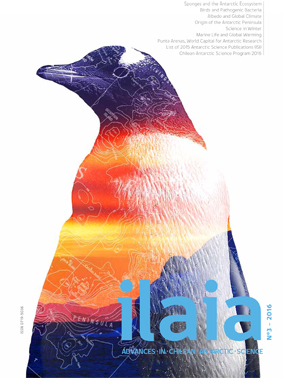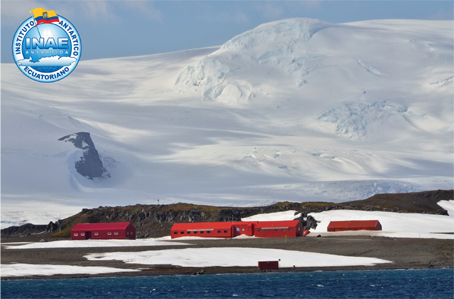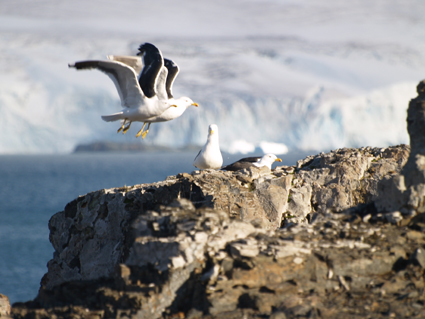- Delegate: Prof Dr Christo Pimpirev – Bulgarian Antarctic Institute, email
- Alternate Delegate: Ass Prof Dr Lyubomir Kenderov – Sofia University “St Kliment Ohridski”, email
- National Committee: Bulgarian Antarctic Institute, email; website:www.bai-bg.net
National Reports on SCAR Activities – Bulgaria
The Bulgarian Antarctic Program is a responsibility of Bulgarian Antarctic Institute (BAI) which was designated as the national operator of the activities of Republic of Bulgaria in Antarctica by the Council of Ministers in 1997. During the period from 1987 to 2017 the Bulgarian Antarctic Institute has organized and conducted 25 national Antarctic campaigns and operates the Bulgarian Antarctic Base “St. Kliment Ohridski” on Livingston Island, South Shetlands.
The Bulgarian Antarctic Institute has been a member of the Council of Managers of National Antarctic Programs (COMNAP) since 1994, the Scientific Committee on Antarctic Research (SCAR) since 1995 and the European Polar Board (EPB) since 1998. Its representatives participate actively in the annual meetings of the above-mentioned organisations and have held senior positions in them (prof. Christo Pimpirev was a Vice Chair of COMNAP from 2006 to 2010 and a Vice Chair of EPB from 2010 to 2013). The Bulgarian Antarctic Institute organized and held the XVII meeting of COMNAP in Sofia in 2005 and the annual meeting of EPB in 2013. Bulgaria hosted the XXXVIII Antarctic Treaty Consultative Meeting (ATCM) in 2015.
In 2008 the National Center for Polar Studies was set up as a separate department at the Sofia University St. Kliment Ohridski, working in conjunction with BAI for organizing many educational and outreach activities in the country.
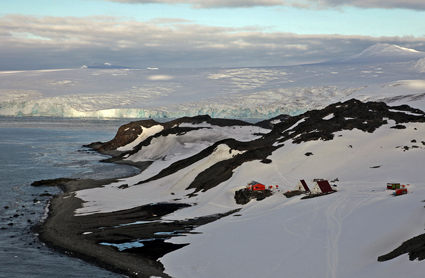
Bulgarian Antarctic Base “St. Kliment Ohridski”, Livingston Island, South Shetland Islands
The Bulgarian Antarctic Base “St. Kliment Ohridski” (BAB) is equipped with biological and geological laboratories for pre-treatment of selected samples of the bio- and geosphere. Within the Bulgarian Antarctic expeditions, numerous Bulgarian scientists from the Bulgarian Academy of Sciences, Sofia University “St. Kliment Ohridski”, Medical Academy, Mining and Geology University “St. Ivan Rilski”, University of Architecture, Civil Engineering and Geodesy and the National Sports Academy “Vasil Levski” have conducted research in the areas of geology, geophysics, geochemistry, glaciology, meteorology, geodesy, zoology, botany, ecology, medicine and engineering. As a result of this research many M Sc, PhD and Sc.D. theses were defended.
Since 1996 BAI has been issuing the periodic scientific journal “Bulgarian Antarctic Research, Life sciences”. Research in the field of Earth Sciences and Biology were published in a monography “Bulgarian Antarctic Research, A synthesis” (editors: Chr. Pimpirev and Nesho Chipev, Sofia University Publishing house, 2015 – http://www.bai-bg.net/science.html).
In recent years Bulgaria has participated in a number of large international projects funded under the Framework Programmes of the European Community such as ERA-NET EUROPOLAR, ERICON European Research Icebreaker Consortium – AURORA BOREALIS and EU-PolarNet within Horizon 2020.
BAI maintains lively contacts with the international scientific community. Many scientists from Argentina, Great Britain, Germany, Spain, Canada, Colombia, Luxembourg, Macedonia, Mongolia, Poland, Portugal, USA, Turkey, Chile, South Korea and Japan have conducted their own research as well as joint projects with Bulgarian scientists at the Bulgarian Antarctic Base.
The results of the research conducted in BAB have been published in scientific journals with high impact factors and have been reported at numerous prestigious international conferences.
In 1994 the Antarctic Toponymic Committee in Bulgaria was established and they have been working in the Ministry of Foreign Affairs since 2001. A map of Livingston Island was made in scale 1:100,000.
Now BAI starts the implementation of the five-year National Program for Polar Research (NPPI) 2017-2021, adopted by the Council of Ministers.


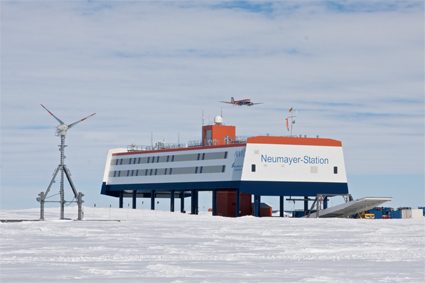
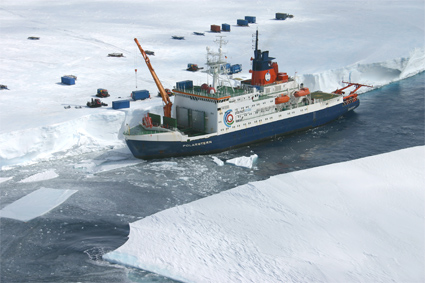
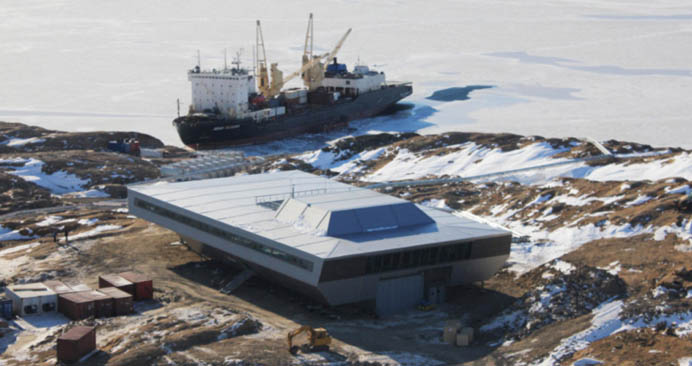
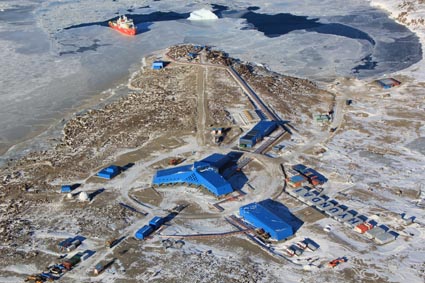

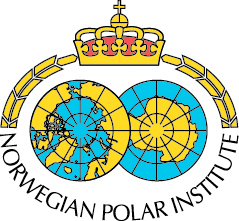
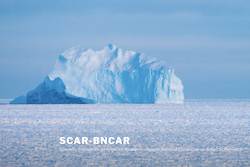 Belgium has a long history with Antarctica. Commander Adrien de Gerlache set sail to Antarctica with the Belgica in 1897 for what became the first recorded wintering in the Antarctic. On board was a multinational crew, amongst whom the explorer-to-become Roald Amundsen and the later-to-become infamous dr Frederick Cook were the most renowned. Moreover, the winter expedition gave rise to the first detailed observational measurements in meteorology and biology, thanks to the scientific efforts by Antoni Dobrowolski, Henryk Arctowksi and Emil Racovita. Many Belgian place names in the Antarctic Peninsula witness of this heroic effort.
Belgium has a long history with Antarctica. Commander Adrien de Gerlache set sail to Antarctica with the Belgica in 1897 for what became the first recorded wintering in the Antarctic. On board was a multinational crew, amongst whom the explorer-to-become Roald Amundsen and the later-to-become infamous dr Frederick Cook were the most renowned. Moreover, the winter expedition gave rise to the first detailed observational measurements in meteorology and biology, thanks to the scientific efforts by Antoni Dobrowolski, Henryk Arctowksi and Emil Racovita. Many Belgian place names in the Antarctic Peninsula witness of this heroic effort.
